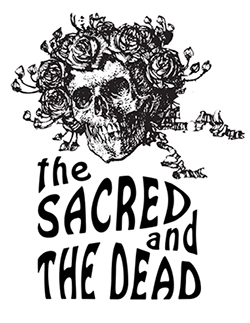Till the morning comes, like a highway sign,
Showing you the way, leaving no doubt,
Of the way on in or the way back out.
~ “Till the Morning Comes”
A long time ago in a faraway land, I wrote my doctoral dissertation on Deadheads.
My thesis was that Deadheads were the embodiment of moral community worthy of notice and an example of how community—as Jean-Jacques Rousseau understood it—can be achieved in a society that discourages it. At a time when others were chalking Deadheads up as no more than a deviant subculture, I extolled them as role models.

A special series on religion and culture produced in collaboration with the Office of Religious Life at the University of Southern California
To marginalize Deadheads is to do them a grave injustice. In my thesis I did not want to refer to them simply as a subculture, a “less-than” culture. I believe that Deadheads should, instead, be understood for what makes them universal—and not as an exception, but rather as a prime example of natural human association, what Rousseau calls socialité.
The community created by Deadheads is what makes them unique; it is a vital, purposeful, and authentic culture exemplifying the pleasures of the social. And I would argue that it’s a moral community.
When I use the expression “moral community” I am not talking about a religious community. What may appear to be religious is really the sociality that Deadheads create. Over the years I have heard people use the language of religion to describe Deadheads: concertgoers “worship” the dead; they go on “pilgrimages” to see the Dead; the concerts are religious rituals.
I have even heard Jerry Garcia described as God.
While I can appreciate these analogies, I will argue that this community has nothing in common with religion. First, there is no doctrine imposed upon Deadheads by The Grateful Dead. There is never any attempt to answer basic questions about existence. Second, there is no guru or prophet leading Deadheads to water, so to speak. And if Garcia were alive today, I am sure he would denounce any label that made him out to be more than just a guy playing the guitar. (Of course I can’t speak for him, but if I were a betting woman….)
I should say that there are a handful of Deadheads who are religious seekers and I certainly would not say that their experiences are not valid, but overall I would argue that Deadhead community is not a religious one. Deadheads have created a value system based on the practice of equality—which is anti-hierarchical and genuinely collective.
It’s a moral community, not a religion.
In order to understand the Deadhead phenomenon you have to think in terms of both culture and community. Community consists of lived and shared experience, where people commit to something they’ve created that is bigger than themselves.
Community provides a sense of connectedness, while culture refers to the various occasions that gives continuity to that sense. As far as culture goes, Deadheads are looking for authentic society in a post-modern universe that privileges the counterfeit.
A Dead show offers authenticity in moments of collective enthusiasm, shared pleasure. And sharing the music is not merely sharing a “thing”—it is a sharing of the very fact of sharing.
The object, music, is meditative rather than a consumable; it is an occasion for desire and not merely a product aimed at reducing desire—and here is where the basic notion of socialité lies. Diversity is not merely accepted, but embraced, as long as it doesn’t threaten the “prime directive” of community.
Deadheads practice community, interestingly, by behaving how they want to—thereby creating themselves as the objects of collective enjoyment. This freedom is not individualist, but rather an expression of connectedness. In contrast, modern society has flattened human potential, standardizing behavior: wear a cat costume like everyone else and pretend that the emperor is wearing clothes. But if you’re a Deadhead, who cares if the emperor has clothes on—is he cool?
We Deadheads create our scene and have a stake in it. The concert is where we gather to share and solidify our Deadheadedness. It allows us to materialize as a collectivity. A person who is likely to become a Deadhead is already questioning authority, conventional practices and rules.
Deadheads serve as a role model for obtaining authentic community in a modern society mostly devoid of it. We are not merely a subculture, but rather an extraordinary group embodying moral community; a group that has persisted through many nights “til the morning comes;” and one that will endure long after the last song is sung.

